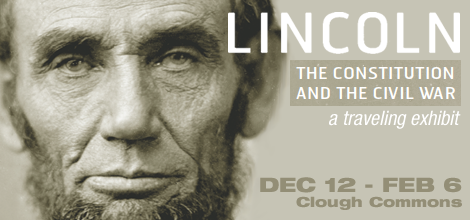event
Mechanisms of Liberty: Law, Technology, and Freedom in the World of Lincoln
Primary tabs
Born on the western frontier in 1809, Abraham Lincoln entered a world alive with experiment. As new technologies such as steam and the telegraph transformed their material circumstances and reach, Americans of Lincoln’s generation conducted a grand experiment in constitutionally-based, democratic self-governance.
For Lincoln, technology held both promise and peril for the tenuous democratic experiment. The country lawyer and politician embraced the regulating mechanism of law as a tool for shaping technology in ways that preserved the new nation and secured genuine liberty for its citizenry. Lincoln’s efforts to reconcile the mechanisms of law and technology and achieve his vision of a just and free society met stiff resistance in the North and ultimately brought him into conflict with slave holders, who looked for the same instruments of law to secure their own vision of liberty and social justice. With the constitutional crisis of secession and Civil War, the shaping power of law loomed larger than ever, as did the transforming potential of technology. President Lincoln grappled with these dual mechanisms for social transformation, even as he dealt with the pressing issues of war and slavery.
Professor Steven W. Usselman is Chair of Georgia Tech’s School of History, Technology, and Society. A past- president of the Society for the History of Technology, he is the author of Regulating Railroad Innovation: Business, Technology, and Politics in America, 1840-1920, which won the Ellis Hawley Prize from the Organization of American Historians and was a finalist for the J. Willard Hurst Prize in legal history.
Usselman's lecture is open to the public. For more information about the Lincoln lecture series and the exhibit, visit the Georgia Tech Library's blog.
Status
- Workflow status: Published
- Created by: Tearanny Street
- Created: 01/11/2013
- Modified By: Fletcher Moore
- Modified: 10/07/2016
Categories
Keywords
User Data


